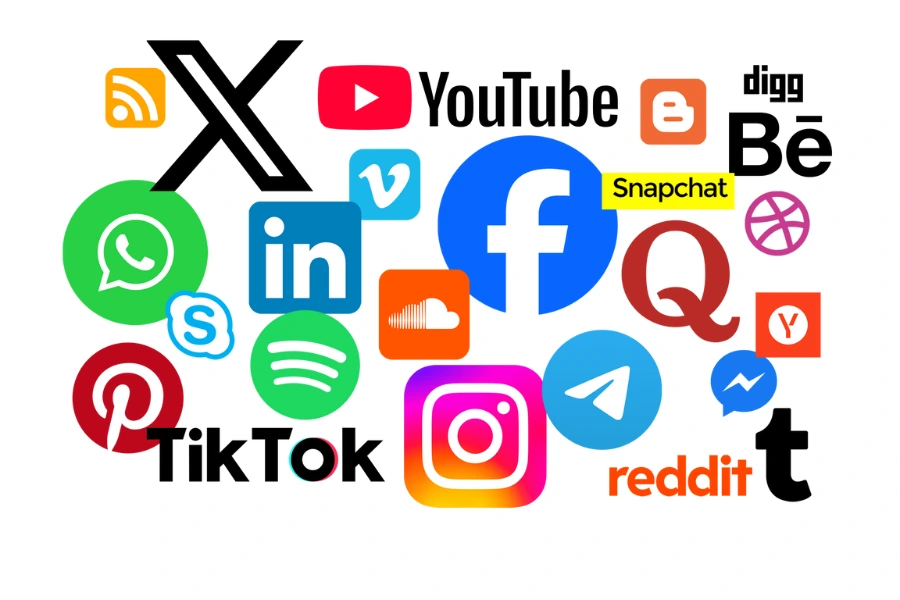Why Genuine Connections Will Drive Social Media in 2025

Social media has undergone a dramatic shift over the past decade. What once started as a means for people to connect with family, friends, and like-minded communities has evolved into a marketplace of influence, advertisement saturation, and, increasingly, AI-generated content. As social media platforms fight to retain users in an era of growing skepticism, one thing is becoming clear—authenticity is the future.
In 2025, the ability to create genuine connections will be the key driver of success on social media. Consumers are becoming more discerning about the content they engage with, platforms are tightening regulations, and brands must prioritise transparency to maintain trust. This article explores why authenticity matters now more than ever, the decline of inauthentic content, and the role of AI in shaping the next phase of social media.
The Growing Demand for Authenticity in a Saturated Digital World
The rise of deepfakes, AI-generated content, and paid influencer promotions has created an atmosphere where users are increasingly sceptical about what they see online. According to a 2023 survey, over 70% of people expressed concern about deepfakes circulating on social media, highlighting a growing trust deficit in digital content.
The Shift in User Preferences
Consumers today crave transparency and meaningful interactions rather than overly polished, sales-driven content. This shift can be seen in:
- The rise of microblogging and community-driven platforms like Threads, where users share real-life experiences, industry insights, and personal anecdotes.
- The decline in traditional influencer marketing, with more users favouring creators who offer genuine advice and value over scripted promotions.
- The success of authenticity-focused campaigns, such as Nike’s #1000Victories series, which highlighted real stories from women in sports.
How Brands Can Meet This Demand?
To resonate with audiences in 2025, brands need to prioritise:
- Authentic storytelling – Real-life challenges, successes, and behind-the-scenes glimpses foster stronger connections.
- Community engagement – Actively responding to comments, addressing concerns, and initiating conversations create a sense of belonging.
- Transparency in marketing – Clear disclosure of sponsored content and AI-generated material prevents potential backlash.
The Fall of Inauthentic Content
While social media has long been criticised for its superficiality, the pushback against inauthentic content is now stronger than ever. From fake reviews to deceptive influencer marketing, the modern consumer is more aware—and less tolerant—of digital deception.
Fake Reviews and Consumer Skepticism
Three out of four consumers are concerned about fake reviews, and 49% of U.S. consumers believe they have seen fake reviews on Amazon in 2024. These fake endorsements not only erode trust but also create unrealistic expectations that lead to consumer dissatisfaction.
In response, the FTC banned fake reviews and testimonials in August 2024, cracking down on AI-generated and misleading influencer promotions. Brands are now being urged to reevaluate their influencer contracts to ensure compliance with transparency regulations.
Influencer Fraud and the “De-Influencing” Trend
Consumers are increasingly sceptical of influencer endorsements, particularly in industries like beauty, wellness, and technology. Instagram influencer fraud was at 49% in 2023, with fake followers, engagement manipulation, and undisclosed sponsorships eroding the credibility of the platform.
This has led to the rise of “de-influencing”, where creators openly call out overhyped products and misleading advertising. While this trend promotes consumer awareness, it also forces brands to rethink their marketing strategies, shifting towards honest reviews, genuine user experiences, and authentic product storytelling.
How Social Media Platforms Are Fighting Back?
Major platforms are implementing new measures to combat fake content:
- Meta now requires AI content to be labeled, helping users differentiate between real and machine-generated posts.
- Amazon and Google filed lawsuits in 2024 against fake review brokers, signaling a more aggressive approach to cleaning up misleading endorsements.
- The Coalition of Trusted Reviews, involving major booking and review sites, aims to establish industry-wide standards for authenticity.
These initiatives indicate a clear trend: the future of social media will be shaped by trust and credibility, not deception and manipulation.
The Rise of Threads and Microblogging: A Return to Genuine Conversations
While Instagram has increasingly become a curated highlight reel of luxury, success, and perfection, new platforms like Threads are offering a refreshing alternative by prioritising conversation over aesthetics.
Why Threads is Gaining Popularity?
Threads, a text-based microblogging app by Instagram, fosters:
- Real conversations: Users share unfiltered thoughts, industry insights, and everyday experiences.
- Relatable storytelling: Unlike polished Instagram posts, Threads allows people to share raw and personal narratives.
- Community-driven content: Posts encourage engagement, replies, and discussions rather than passive scrolling.
The Power of User-Generated Content (UGC)
UGC is emerging as a dominant force in social media marketing because it offers real, unfiltered perspectives from everyday consumers. Brands leveraging UGC effectively:
- Encourage customers to share honest reviews and testimonials.
- Prioritise content that reflects daily life rather than staged perfection.
- Build communities where users feel valued and heard.
AI and Authenticity: Striking the Right Balance
While AI has revolutionised content creation, it also presents challenges when it comes to maintaining authenticity. Consumers still value human emotion and personal connection over machine-generated content.
The Role of AI in Content Creation
AI can enhance social media strategies in various ways:
- Personalised content recommendations to improve user experience.
- Automated moderation to detect and reduce fake engagement.
- Assisting content writers by refining drafts and correcting errors.
However, AI cannot replace the emotional depth and creativity that human-generated content offers.
Where AI Falls Short?
- Coca-Cola’s AI-powered ad campaign failed to generate the expected emotional connection with audiences.
- AI-generated summaries of product reviews are useful but still require human verification.
- Consumers are more engaged with campaigns that require active participation, such as Nike’s “By You” AI tool, which allows customers to design their own shoes.
The Key to Success: Human + AI Collaboration
Brands should use AI as a tool for efficiency, not a replacement for authenticity. The most effective strategies will integrate AI while maintaining a strong human touch.
How Brands Can Adapt and Maintain Transparency
To thrive in 2025, brands must embrace transparency and build genuine relationships with their audiences.
Authenticity Audits
Conduct regular authenticity audits to:
- Ensure content is fact-checked and aligns with brand values.
- Identify areas where AI-generated content may need human oversight.
- Evaluate influencer partnerships to ensure compliance with FTC guidelines.
Ethical Influencer Marketing
Brands should work only with authentic influencers who genuinely align with their values. This means:
- Disclosing all sponsored partnerships clearly.
- Prioritising long-term collaborations over one-off promotional deals.
- Encouraging influencers to share both positive and constructive feedback.
Humanising Brand Messaging
Consumers want to see brands as real people, not faceless corporations. Effective strategies include:
- Engaging directly with users in comments and discussions.
- Sharing behind-the-scenes content that showcases the people behind the brand.
- Addressing consumer concerns openly rather than deflecting criticism.
Disclosing AI Usage
If AI is used in content creation, brands should be transparent about it. This builds trust and ensures audiences are aware of how content is produced.
Conclusion: The Future of Social Media is Real
As AI technology continues to evolve and social media platforms fight against misinformation, one truth remains: authenticity is no longer an option—it is a necessity.
Brands that prioritise genuine connections, engage in honest storytelling, and foster community-driven content will thrive in 2025. Meanwhile, those who rely on artificial engagement, misleading advertising, and influencer fraud will face increasing scrutiny and risk losing credibility.
In a world where users are becoming more socially aware and skeptical of online content, the key to success is simple: be real, be transparent, and be human.
Calling all Marketers!
🔴 Are you tired of searching for the perfect job?
Whether you're into content writing, SEO, social media, graphic design, or video editing—full-time, freelance, remote, or onsite—we've got your back!
👉 We post over 30 job opportunities every single day. Yes, every day (all verified).
Join the most reliable and fastest-growing community out there! ❤️
And guess what? It’s FREE 🤑
✅ Join our WhatsApp Group (Click Here) and Telegram Channel (Click Here) today for instant updates.







